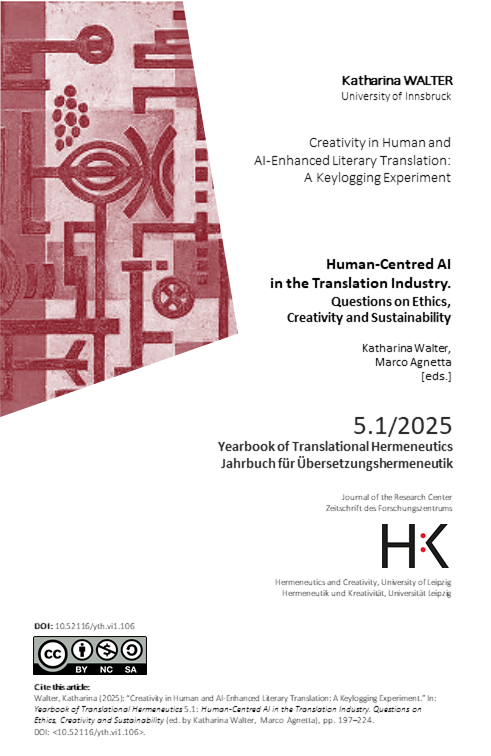Creativity in Human and AI-Enhanced Literary Translation: A Keylogging Experiment
DOI:
https://doi.org/10.52116/yth.vi1.106Abstract
Based on a recent experiment with MA students at the University of Innsbruck, Austria, this article analyzes the benefits and drawbacks of literary post-editing. Using the keylogging software Inputlog, six experiment participants documented not only the product but also the step-by-step process that led to their final German translation of a short prose poem by Virginia Woolf entitled “Green,” which was originally published in 1921. Some students worked only with monolingual and bilingual online dictionaries, while others post-edited an automated translation generated with the DeepL next-generation language model, which was launched in September 2024 and is based on a large language model infrastructure. Echoing previous research on literary post-editing, the experiment results show that AI-enhanced literary translation may entail a loss of creativity. At the same time, as the translation of Woolf’s prose poem with its novel images and expressions requires translation strategies that move underneath the textual surface level, the time gains that come with partial automation are negligible at best.

Veröffentlicht
Ausgabe
Rubrik
Lizenz
Copyright (c) 2025 Katharina Walter

Dieses Werk steht unter der Lizenz Creative Commons Namensnennung - Nicht-kommerziell - Weitergabe unter gleichen Bedingungen 4.0 International.
